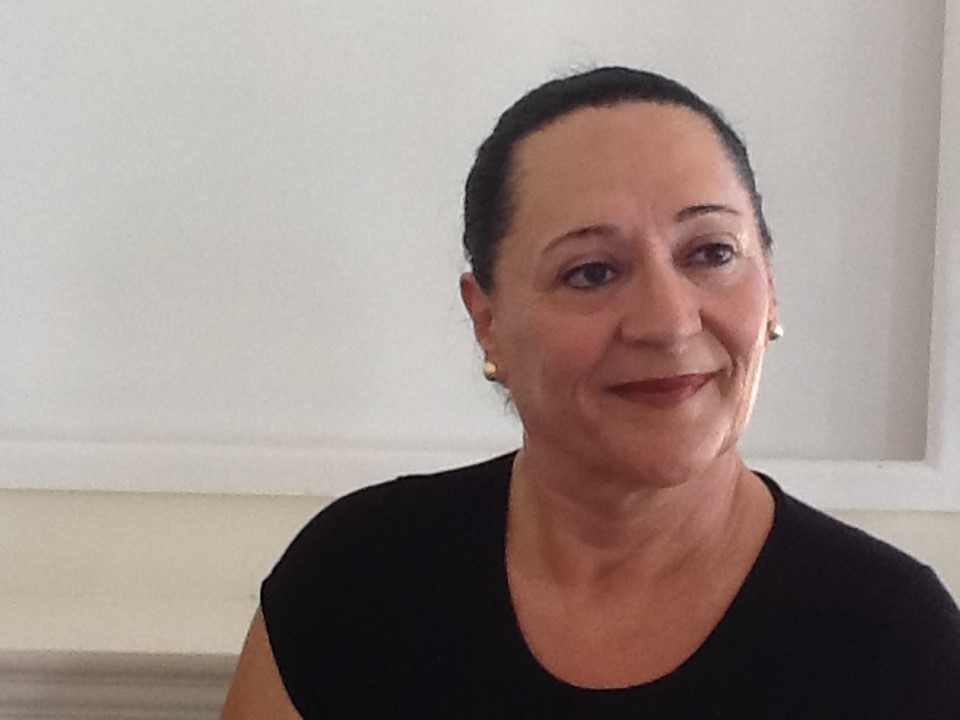
Agnes Katsianos, Ph.D. in Applied Linguistics ‘18.
“The lucky students are the ones whose teachers acknowledge that they, too, are travellers and still have far to go.”
Dr. Agnes Katsianos had been a teacher and teacher trainer for many years before she decided to pursue doctoral studies. In several important ways she was an ideal candidate to benefit from the program. She had founded her own school, the Agnes Katsianos School of Foreign Languages. She had also already completed a master’s degree in TESOL from Aston University (UK), which had challenged her to clarify her assumptions and intuitions about second language acquisition.
Throughout her career, Agnes has been committed to helping her students take ownership of their learning. One of the innovations she spearheaded at her school was peer teaching. From as early as seven years of age, students are given opportunities to teach their classmates. This role, which Agnes says has become very popular at the school over the years, helps build students’ self-confidence and reinforces their own learning.
A dedicated reflective practitioner for years, Agnes became interested in further exploring the research and theoretical underpinnings of learner autonomy. The Ph.D. program was a good match. With its focus on the research practitioner, the program engages students in applied research projects throughout their studies, and, of course, in their dissertations. Agnes’s thesis focused on teachers’ beliefs about their students’ capacity to become autonomous learners. According to her supervisor, Dr. Christine Niakaris, her approach was not only well-researched but also “driven by her love of teaching.”
Agnes says she is grateful for the program.
“My studies have helped me as a teacher researcher, and my school as well, inspiring me and my teachers to find effective ways to support our students’ learning and our own professional development.”
Among the reflective tools she uses are peer and self- observations, the keeping of classroom diaries, and webinars. Agnes has also instituted annual research reflection projects at her school. For these projects, her teachers gather classroom research data, which are analyzed and discussed at monthly meetings at the school. The projects have already begun to make an impact. "It's amazing,” she says, “to see your teachers developing into teacher-researchers in your school, who strive to be open to new ideas, make improvements when and where they can, and have the humility to say ’I could do better”
In Agnes’s view, the role that the Director of Studies has always had in promoting teacher development is even more crucial in this new era of English-language learning. In most cases, it is the Director of Studies who will guide teachers on the road to self-evaluation and stimulate the teacher to become empowered and more resourceful. These efforts, she says, will be recognized by colleagues and students alike, contributing in the end to the school's welfare and success. “The lucky students,” she says, “are the ones whose teachers acknowledge that they, too, are travellers and still have far to go."